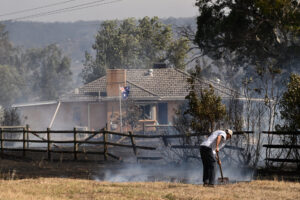Dressing windows while the globe burns
Share
The recent rush of activity around climate change has led some to suggest that the Federal Government has finally got the message on the perils of global warming, but history indicates such optimism is misplaced. The Government’s announcements of the past month are just more of the window-dressing and stalling tactics that we have had to endure for more than a decade. The Government’s strategy on climate change has been simple. Deny it and muddy the waters on the science for as long as possible, while providing large subsidies to the fossil fuel industry under the guise of greenhouse programs. A major study on subsidy programs like these that was published by the Organisation for Economic Cooperation and Development in 2003 found they usually resulted in outcomes that would have occurred anyway. And the domestic evidence on subsidy programs backs this up. When people tell you that the Government has turned the corner on climate change, tell them to read their history. The Government will deserve accolades if it introduces a comprehensive carbon trading scheme. Anything less is just window-dressing designed to put off the inevitable.
Related documents
Between the Lines Newsletter
The biggest stories and the best analysis from the team at the Australia Institute, delivered to your inbox every fortnight.
You might also like
Was your house freezing over winter? A bit more “red tape” could have kept you warm
“Deregulation” is back in the news, but this time it’s not Tony Abbott talking about “cutting red tape”, it’s Labor ministers.
Burning homes and rising premiums: why fossil fuel companies must pay the bill
Another summer, another round of devastation: homes lost, communities evacuated, lives upended.
The welfare system isn’t just on fire, it’s burning out of control
The problem with having pattern recognition is that you can always see the fires before they start.


